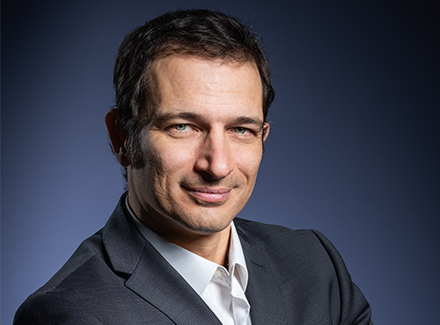TECH NEWS
Sopra Steria presents white paper on Open Maas: the future of mobility
With lockdowns behind us and the economy recovering faster than most of us dared to hope for or expect, mobility is quickly becoming top of mind again. From traffic congestion to air pollution: the old mobility issues may have seemed to disappear during the COVID crisis, but they clearly haven’t been resolved yet. In some cases you might even say they’re back with a vengeance. Which makes this an ideal time to put our new mobility solution on the table: Open MaaS (Mobility as a Service).
November 2, 2021

It cannot be denied that many far-reaching technological developments, especially in sectors such as medicine or communications, have led to considerable progress in the last few decades. Other major changes, however, such as globalisation and rapid population growth, have put increasing pressure on us and our planet over the same period.
Mobility challenges aplenty
Due to this persistent pressure, our mobility has become increasingly contentious. After all, more people means more (economic) activity. And that inevitably leads to more traffic and therefore more congestion and other traffic problems, both locally and globally.
Under pressure from the European Union, in particular, the legal framework for mobility providers is also undergoing rapid change. For example, they are increasingly subject to government restrictions. In addition to protecting European citizens and their rights, the aim of many of these new regulations is to reduce the harm to our environment.
And then there are the citizens – we require simple, flexible, and transparent solutions for our mobility. Unfortunately, in practice, we are all too often confronted with a mobility landscape that seems increasingly complex and difficult to navigate.
From Maas to Open MaaS
Thanks to the promising new concept of Mobility as a Service, or MaaS for short, we are now in a position to begin taking on the mobility challenges mentioned above. MaaS combines innovative technology with mobility data that the various MaaS partners can share with each other. The result is a solution where the customer pays for a single ticket that allows them to seamlessly complete their journey using several different operators.
With the MaaS concept gaining ever more traction, the time seems ripe now to take it to the next level. With Open MaaS we want to expand the MaaS concept even further to include other, less traditional mobility services, from carpooling to bike-sharing. We like to define Open MaaS as an open ecosystem that welcomes any transport company and any new mobility service, such as peak-pollution packages or post-pay packages, depending on the policies of the jurisdiction. Moreover, it offers a level of accessibility that makes transport available to all citizens, regardless of disability.
Sharing our expertise
The key to effectively making Open MaaS a success lies in open data sharing and deep integration. To achieve this, it’s best to call on an independent, experienced specialist who can draw on extensive expertise, a role that we at Sopra Steria Benelux are happy to fulfill for our customers.
We are also happy to share that valuable expertise with the outside world. To that end, we have prepared a white paper on Open MaaS that we will be distributing at this year’s ITS World Congress in Hamburg. Sopra Steria is supporting that annual celebration of smart mobility as a General Partner. Our experts will also take part as speakers in its conference program, presenting our approaches and solutions for a more open, more fluid, and more eco-responsible mobility. Needless to say, if you are attending this year’s event, you are most welcome also to visit our stand (#B5003) and discuss directly with our experts there.
Untangling today’s mobility knot
Our white paper on Open MaaS first deals with the state of the art of MaaS, its definition, and its main drivers. It then goes on to present our vision and definition of the Open MaaS concept, as well as some best practices for implementing an Open MaaS solution, with particular emphasis on the governance aspect. Finally, it looks towards future opportunities for this promising new mobility concept.
Also included in our white paper are contributions from Open MaaS partners such as Axway, Kisio, and Stoomlink. Last but definitely not least we also lend a voice to one of our main and most advanced customers: the Norwegian mobility services provider Entur. All of their contributions have been invaluable in helping us to untangle today’s mobility knot.
Download our white paper on Open MaaS: ‘The future of mobility is smarter, more sustainable, inclusive and open’.